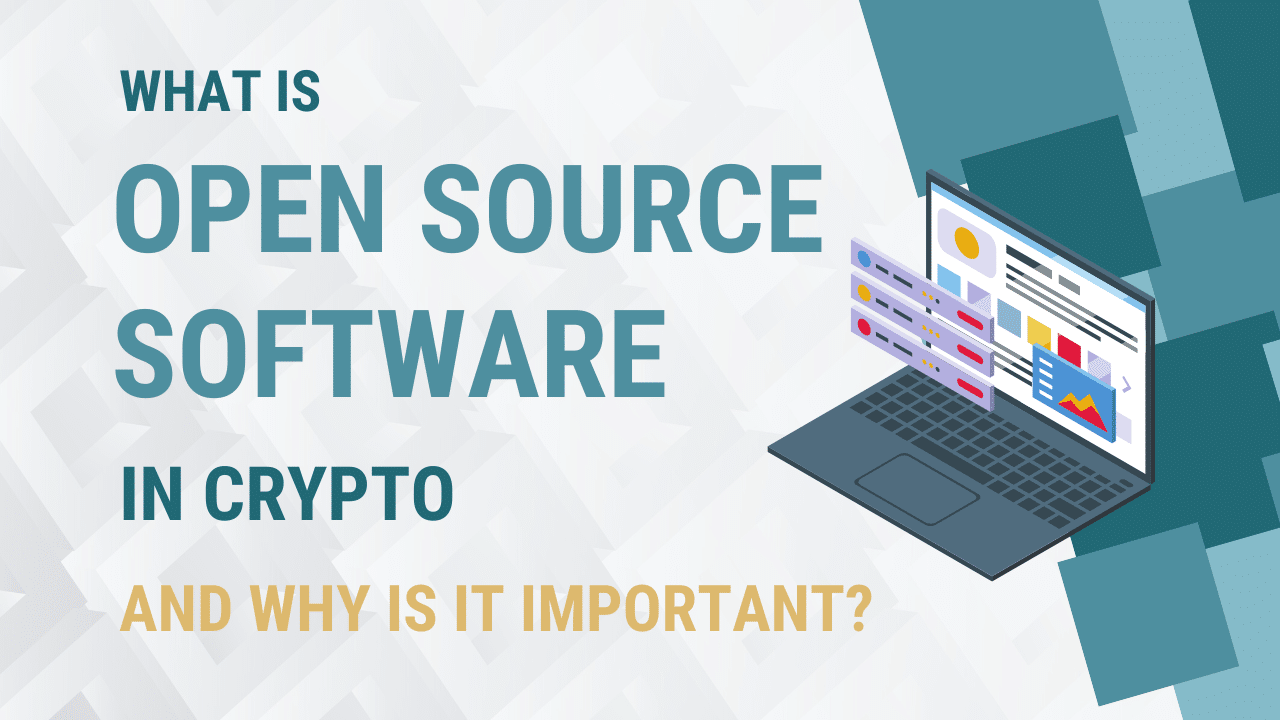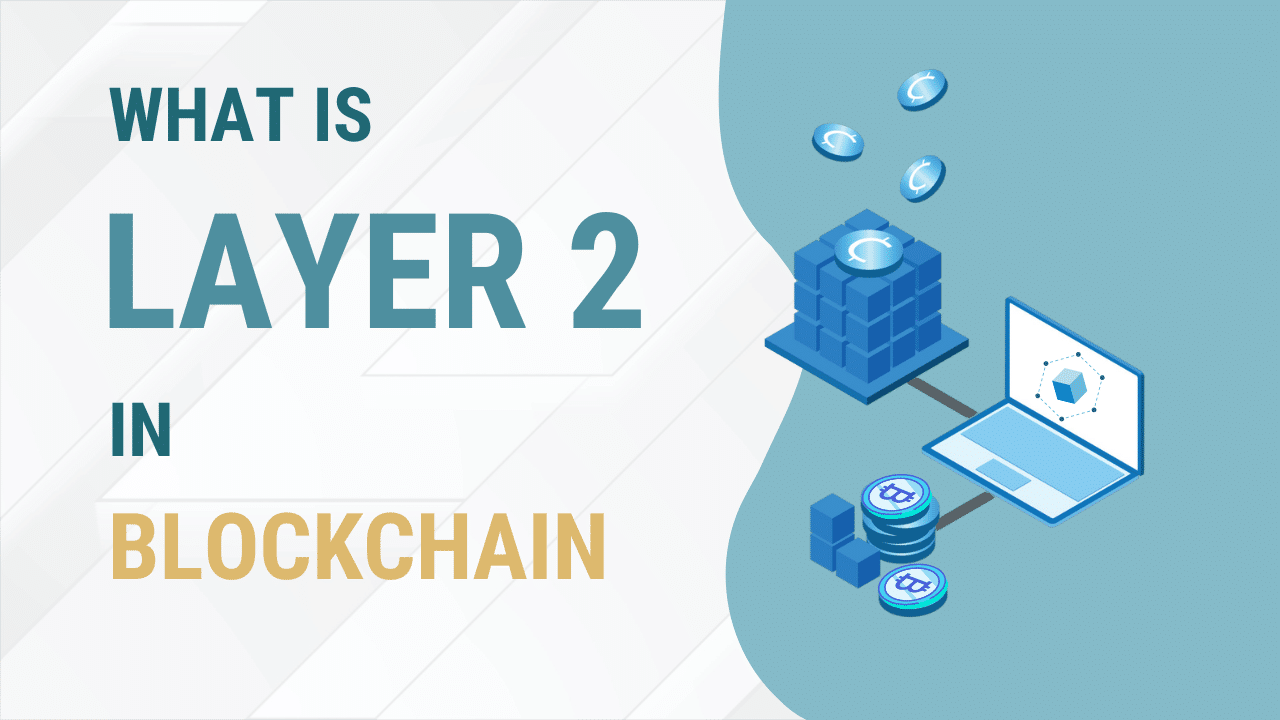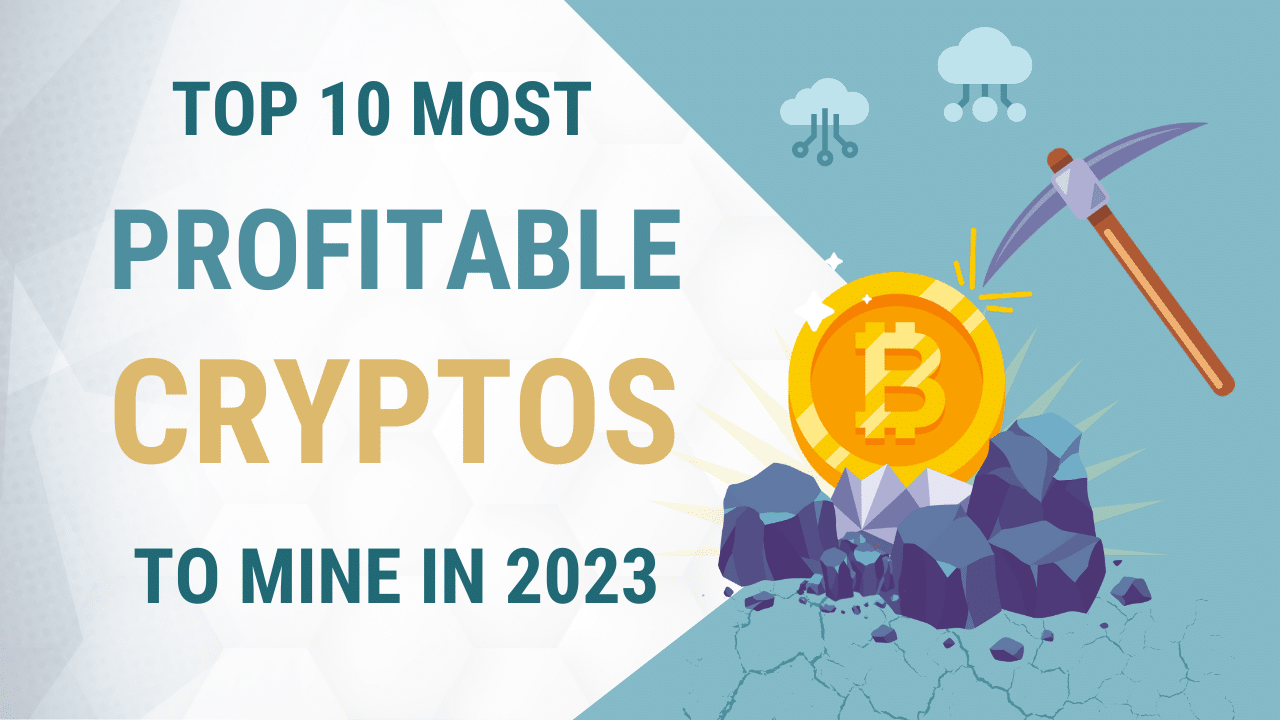The word ‘wallet’ is extensively used in the cryptocurrency world. Your wallet is where you store your assets and where you validate your cryptocurrency holdings.
Before you can start accumulating cryptocurrency, you must choose the kind of wallet that’s right for you.
Cryptocurrency wallets come in a variety of types, just like standard leather and vinyl wallets.
Among the most typical kinds are custodial and non-custodial wallets.
In this post, we’ll discuss what custodial vs non-custodial crypto wallets are, their advantages and disadvantages, how they compare with one another, and how to pick the correct one for you.

What is a Custodial Wallet?
Custodial wallets are digital wallets that are almost always internet-based. Custodial wallets are available when you sign up with centralized crypto exchanges like Coinbase or Crypto.com.
With custodial wallets, users rarely have to interact directly with their wallets. They just need to log in to their exchange account to trade crypto. It’s preferred by newcomers because this process is more user-friendly.
Moreover, because of the way they’re set up, custodial wallets allow users to simply reset their login information if they forget a password. This means the risk of losing access to your crypto is drastically lower than with non-custodial wallets.
If a non-custodial wallet holder loses his or her access key, the crypto funds in that wallet may never be recovered.
With that said, being able to easily recover lost passwords can open its own can of proverbial worms. Unlike keys, passwords are often easily hackable, meaning your funds are much more vulnerable to crypto crime. You can help defend against this by creating more secure passwords, but you’ll never be able to eliminate that risk.
All in all, using a custodial wallet requires significant trust in the platform. Before you decide on a platform, make sure you do your homework and you’re using a reliable, trusted exchange.
See our FAQ at the bottom of this post for the types of questions you should ask about your exchange.
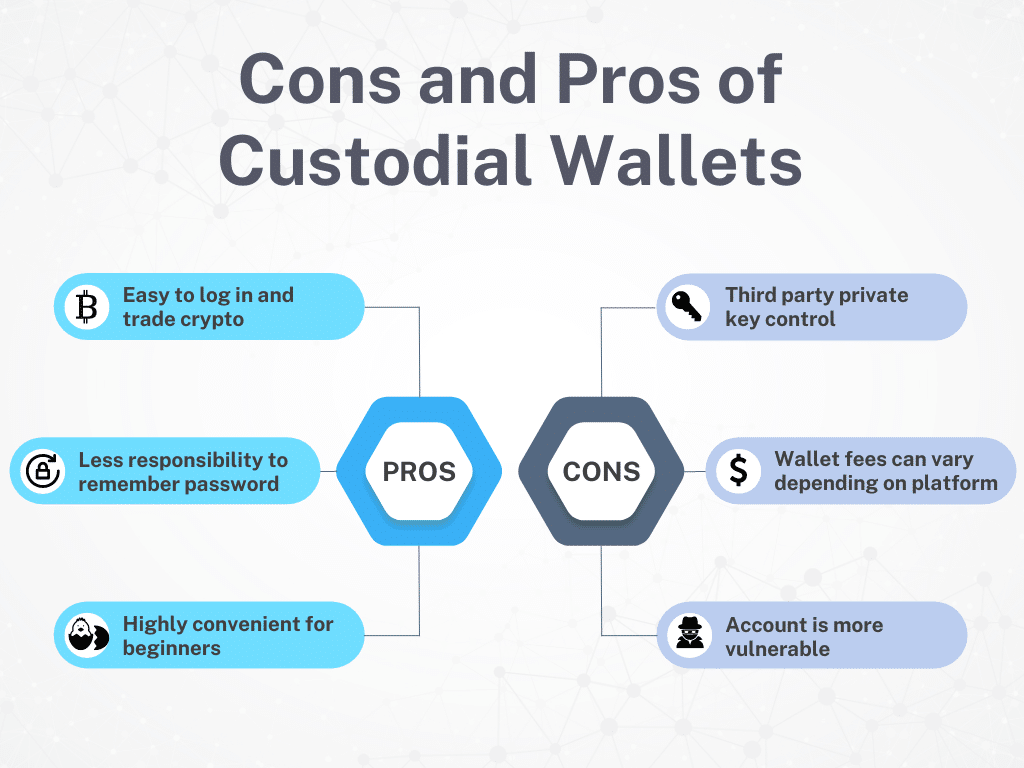
What is a Non-Custodial Wallet?
A famous saying in crypto is “not your keys, not your crypto.” This basically means the only true and verifiable wallet owner is the person who holds the private key. If someone else gets your private key and they steal your crypto, there’s no way to press charges or recover your money.
Crypto users with non-custodial wallets have absolute control over their funds because only they know their key. However, non-custodial wallets are complex and difficult to access, so they’re favored by more experienced crypto users with larger holdings.
These wallets are available in different forms, such as browser (internet) wallets, software wallets that can be installed on your device, and even hardware wallets that can be kept on a thumb drive.
The biggest risk with a non-custodial wallet comes with the security it provides. Because your private key is established and held by you only, there’s no way to access your funds if you lose it.
Fortunately, with some non-custodial wallets, you’re able to establish a “seed phrase”. This is a phrase built with 12-24 random words of your choosing that can be used to access your funds if you lose your key.
This phrase should be guarded carefully, though, because the seed phrase grants access to the wallet the same as your key.
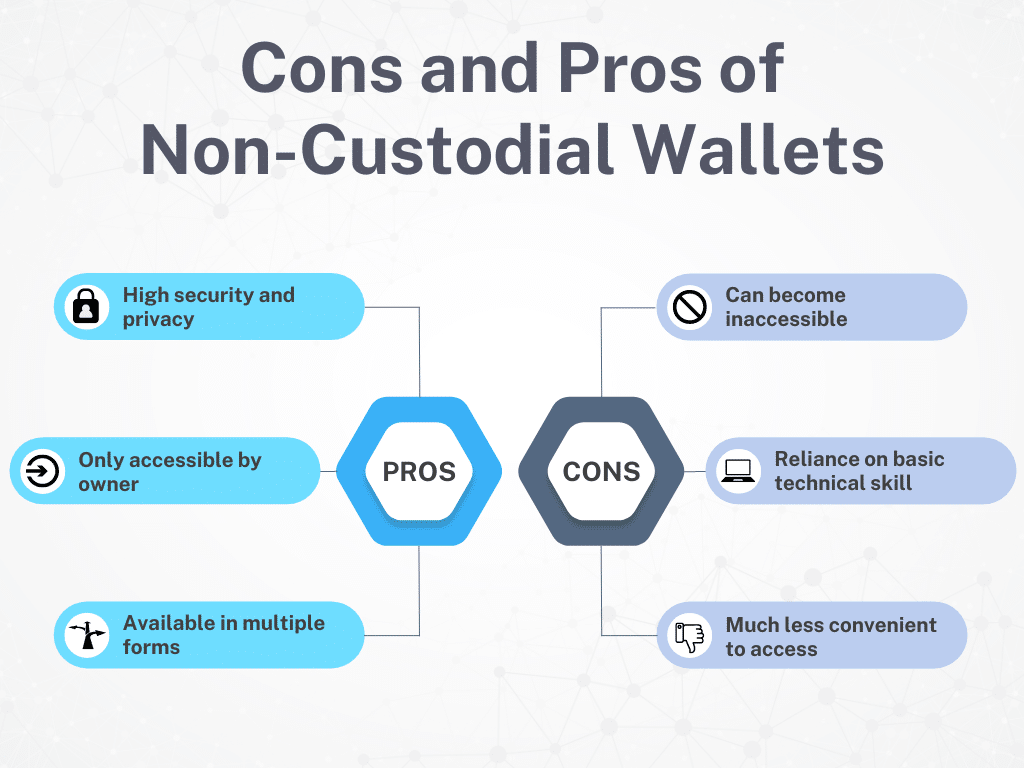
Custodial VS Non-Custodial Wallets: Who Owns Your Keys?
As you may have gathered, the biggest difference between custodial and non-custodial wallets is who holds the key. In fact, the phrase “custodial” refers to who has custody of the wallet key.
With custodial wallet services (or crypto exchanges) like Kraken and Coinbase, the institution holds the private key and automatically uses it to open your account when you log in. With a non-custodial wallet, you have custody of the key. And with it, you also have full responsibility for your holdings’ welfare.
Which Wallet Type Should You Choose?
Unfortunately, in the case of custodial vs non-custodial wallets, we can’t tell you whether one wallet or the other is right for you. Before you make your choice, you should take the time to consider which features are most important for you.
Who is a Custodial Wallet Right For?
Custodial wallets are generally better for those who are:
- Beginners in cryptocurrency
- Not particularly technically savvy
- Aren’t confident in their ability to keep track of a private key
- Don’t plan to have excessively large holdings
- Don’t mind surrendering some of the control over their holdings
- Don’t mind sacrificing security for ease of use.
Who is a Non-Custodial Wallet Right For?
Non-custodial wallets are generally better for those who are:
- Confident in their understanding of cryptocurrency
- Want complete control over their funds
- Have a secure location to key their unique private key
- Have a fair understanding of technology or are confident in their ability to learn how to manage a private wallet
- Plan to have large holdings
- Don’t mind sacrificing convenience for security.

Custodial VS Non-Custodial Wallets: Frequently Asked Questions
1. What questions should I ask about my crypto exchange?
Choosing a custodial wallet provider should be a multiple-day process involving intense research. Some of the questions to ask about your potential exchange include:
- How they secure private keys
- Whether they offer insurance coverage
- What their process is if an account is hacked or their database is breached
- What is the process if you lose access to your account
- What is their average time to reply to service requests
2. Are Coinbase and Kraken examples of non-custodial wallets?
Most exchanges like Coinbase and Kraken are custodial services that do not have options for managing your own private key.
3. How do I transfer money into a non-custodial wallet?
Transferring money into a non-custodial wallet isn’t much more difficult than using a custodial wallet. However, not all self-hosted wallets allow you to exchange regulated currency directly for cryptocurrency, so you may have to transfer the crypto into your wallet from elsewhere.
4. How do I acquire a non-custodial wallet?
With non-custodial wallets, you usually have to find a wallet provider to sell you your wallet. Once the transaction completes, you’ll have a wallet generated with a completely unique key that no one else has ever seen.
5. What are private keys?
A private key is a random series of letters and numbers that allow you to securely access a crypto wallet. Think of it like a password that you can’t choose and can never be changed.
How Can I Learn More About Buying Cryptocurrency?
Learning about cryptocurrency can be complicated, but Dypto has you covered. On our site, you have free access to resources like How-to articles, blogs, graphic modules, and even quizzed courses that you’ll eventually be able to take and earn crypto just for completing.
To get started, visit our graphic modules or get started reading other articles on our blog.
Dypto out!
Want to join the Dypto journey? Follow our socials!
